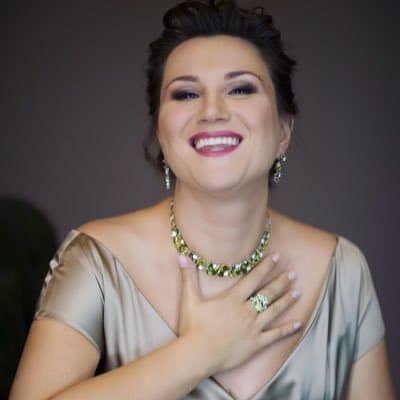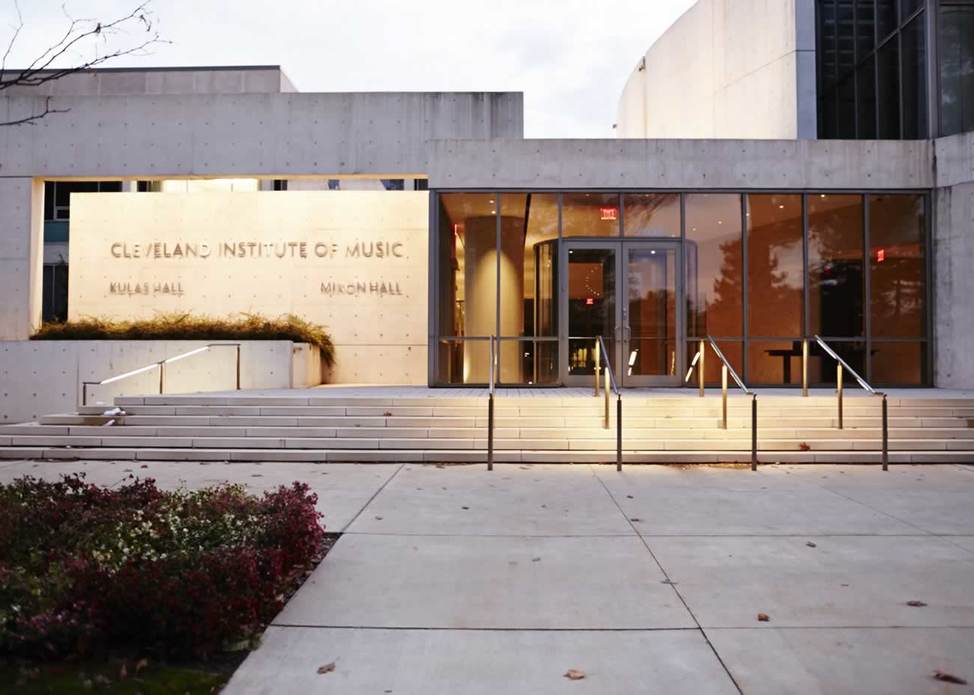Watch the world’s first opera with a transgender historic character
UncategorizedAmerican composer and Grammy winner Tobias Picker and librettist Aryeh Lev Stollman have written the world’s first major opera for and about a person with a transgender background. This opera is streamed by Slippedisc, courtesy of OperaVision. Commissioned by Konzert und Theater St. Gallen, Lili Elbe, in the tradition of great works of the operatic repertoire, is the story of a love overcoming all obstacles. During her lifetime (1882–1931), Lili Elbe was an internationally known personality. The opera is based on historical sources including Lili Elbe’s own writings, unlike the film The Danish Girl (2015) which is based on the novel of the same name. The opera’s title role is played by the celebrated heroic baritone Lucia Lucas – recently seen at Metropolitan Opera New York, Lyric Opera of Chicago and English National Opera – who also acted as dramatic advisor to the authors. Staged by Krystian Lada, the creative team includes conductor Modestas Pitrenas and choreographer Frank Fannar Pedersen. St. Gallen dance company has a central role in this world premiere.
The Plot: the painter Lili Elbe was the first person to have gender confirmation surgery in the 1930s. The homonymous opera is a glimpse into the life of Lili Elbe and her wife Gerda Wegener (also a famous painter) through Lili’s transition at a time when such surgery was still completely uncharted territory.
ACT I
Copenhagen, November 1925
At this time Lili Elbe presents as a man and lives under the name Einar Wegener. Lili is married to Gerda Wegener, both work as artists. The couple attends a play which tells a modern version of the story of Orpheus and Eurydice. Their friend Anna Larsen Bjørner stars as Orpheus. The next day Anna is supposed to model for Gerda but cancels last minute. Gerda asks Lili to step in, so she can finish the painting on time. Wearing a dress and imitating Annas pose, Lili finally feels like herself and asks Gerda to call her Lili from now on. A few days later Lili, for the first time, presents herself as a woman at Gerda’s art exhibition. Gerda and Anna consider this to be a joke. Lili explains to Gerda that she only wants to live as Lili from now on, a wish which unsettles Gerda. They decide to move to Paris. Lili hopes for more freedom to live her true self and Gerda hopes for more success with her art.
Subtitles in English and German
Available from 1900 CET / 1800 London/ 1300 NY






An opera based on what people have between their legs. How… progressive.
It is, oddly, transphobes who reduce transgender people to “what they have between their legs.” There’s more to human beings than their genitalia, you know. Including trans people.
I’m instantly labelled “transphobe” by a person who preaches tolerance… isn’t that interesting. (I don’t expect you to understand).
Correct; and you’ll note I reach that conclusion based on what you write, not based on “what you have between your legs.”
“Tolerance”, in this context, means you can say transphobic things, and I get to call you a transphobe. It’s not hard.
Tolerance, my friend, is to not label people you who never has met, based on one single comment. Although I can understand it gives you a (sorely needed?) dopamin rush. I can definately tolerate that. Good luck with your own exploration of tolerance!
As you know the minute someone dislikes something of this nature they are accused of being trans phobic etc..Fact is the concept has no appeal to many of us for a variety of reasons, most importantly it lacks artistic merit.
tell that to lili elbe who consented to major reassignment surgery.
the headline could do with some amending …
Laura Kaminsky’s ‘As One’ might be “the world’s first opera with a transgender central character” :
since its premiere in 2014 (American Opera Project, New York) it has received over fifty new productions making it “the most widely-produced contemporary opera in North America” (Opera America Magazine).
As it happens, its first scenic production in Germany premieres tomorrow!
https://www.theaterregensburg.de/produktionen/as-one.html
Technically speaking, As One is not an opera but a chamber opera scored for two singers and string quartet. This helps account for the 50 productions, especially in the American opera world which only has one full time house for a country of 330 million people.
This might also explain why Picker’s opera is being premiered in St. Gallen, Switzerland, a city with a population of only 75,000 but which outclasses US cities 10 times its size for opera performances per year. The sad realities Americans don’t want to hear and whose implications most Europeans don’t comprehend.
Think I’ll pass thanks. Unlike Lili, who won’t.
Journalism is about doing your homework. Clearly not your strongest suit. Not only is there “As One” (U.S.) but also the Greek National Opera premiered “Strella” last year, by Michalis Paraskakis. PS. The U.S. is not the center of the universe.
This last sentence. Oh, yes, yes!!!!!!!!!!!!!!! Even more relevant these days.
Oh goodie!! Can we have another one after that about trans competing in womens’ sports?!
But the entire opera repertoire is saturated with transgenderism – baroque opera with its castrati, and 19C opera with the Hosenrollen, with Strauss’ Rosenkavalier (1911) going into double trans, with a woman playing a man who plays a woman (Octavian). It is not necessary to take the subject literally, it is all make-believe anyway.
This is a trailer:
https://www.youtube.com/watch?v=3ZjBx8bigUI
The music sounds particularly neoclassical, or: normal theatre music.
The subject is so distasteful, that the music should be utterly brilliant and inspired to be capable of tempting listeners to enjoy the production.
It says much about John “Sally” Borstlap´s international standing as a composer that the only entries when you type his name in Google search are comments on Slipped Disc
When John Became Sally…..This would male an interesting libretto.
I tried to listen to / watch this production, but gave up after some 20 minutes. I don’t think the music has enough strength to inject some universal interest in the plot / subject.
Interesting is, however, that now that modernism and postmodern ‘hip’ (the flirt with pop, folk, etc.) in opera music has crumbled considerably, composers go back to the type of theatre music that actually works. Although no garantee for great quality, this is the best direction that new opera could possibly take, since the other options have shown to be failures. Apart from this work by Tobias Picker, there has been the surprising opera by Guillaume Connesson with music taking-up the twenties and the lighthearted french chanson:
https://www.youtube.com/watch?v=8fWCTlQ9yYc&t=97s
The whole work on radio:
https://www.radiofrance.fr/francemusique/podcasts/samedi-a-l-opera/connesson-les-bains-macabres-au-theatre-imperial-de-compiegne-1383868
Connesson’s music, lighthearted but very musicallly inventive, carries the plot, instead of merely illustrating what happens on stage as in the Picker work.
The challenge is, to write effective theatre music which can survive comparison with the existing repertoire. But that is more interesting than covering-up lack of imagination with a ‘timely trendy subject’.
Refreshments? Concessions? Tacos or hot dogs?
Or perhaps something as tasteless as your joke?
Tobias is an utter weirdo. He is in an interview with the dude chic giovanni and he is clearly, CLEARLY, into the he/she playing Giovanni. Such a weirdo.
Inclusivity in a so-labelled elitist genre that is now further down the road to extinction. I’ll pass thank you.
Akhnaten was non-binary
… and also much non-else.